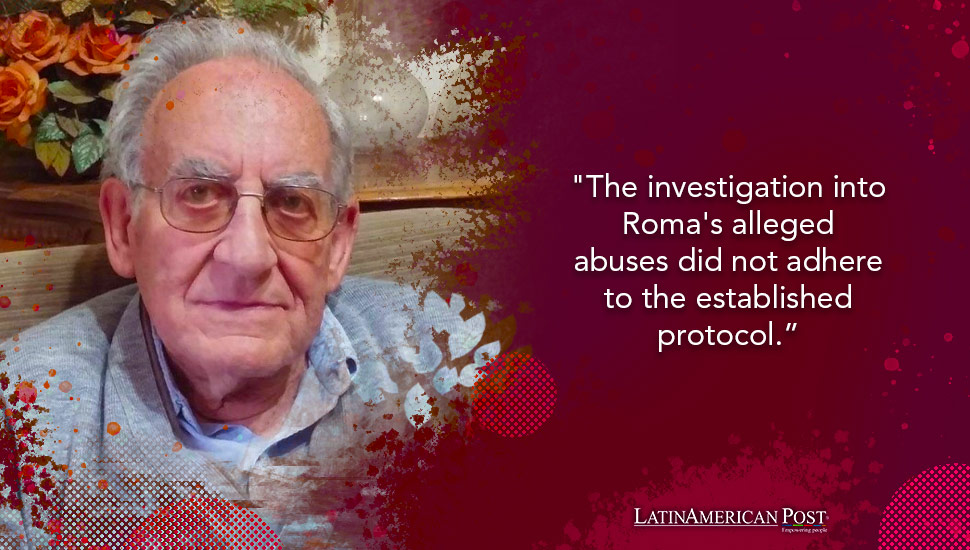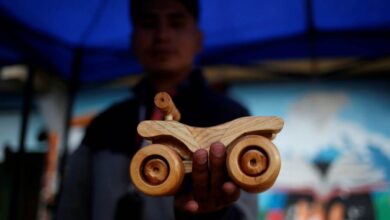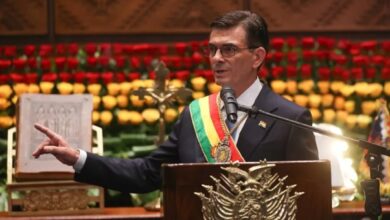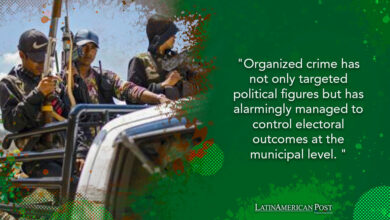Bolivia’s Jesuit Order Fails in Addressing Abuse Allegations

The mishandling of abuse allegations against the late Spanish priest Luis María Roma by the Jesuit Order in Bolivia reveals significant institutional flaws, calling for urgent reforms in Transparency and victim support.
The Jesuit Order in Bolivia has come under intense scrutiny for its handling of abuse allegations against the late Spanish priest Luis María Roma. Sergio Montes, the spokesperson for the Jesuits in Bolivia, admitted to EFE that the order failed to follow proper reporting protocols or adequately seek out victims. This case, reopened by the Bolivian Prosecutor’s Office, sheds light on the systemic issues within religious institutions in addressing such grave matters.
According to Montes, the investigation into Roma’s alleged abuses did not adhere to the established protocol. “The steps outlined in the protocol were not followed, as the canonical investigation was conducted in a manner that was negligent, evidently indifferent, and probably did not act as it should have,” Montes acknowledged. The ‘Healthy and Safe Environments’ protocol from February 2019 mandates that the Jesuit Order must report any known cases of sexual abuse to the Prosecutor’s Office. However, this procedure was not followed in Roma’s case.
Montes also admitted that the order’s method of contacting potential victims was likely inadequate. In February 2019, an anonymous ex-member of the order brought forward allegations against Roma, backed by about thirty photographs purportedly showing the priest abusing minors aged between 6 and 12 years. This prompted an internal investigation led by then-provincial Osvaldo Chirveches, which included a commission of at least one Jesuit, a psychologist, and a lawyer.
Roma passed away on August 6, 2019, without knowing the outcome of this investigation. In mid-2022, the order publicly acknowledged the credibility of the allegations. The case resurfaced in May 2023 after the Spanish newspaper El País published an investigation into the personal diary of Jesuit Alfonso Pedrajas, revealing alleged abuses against numerous children and adolescents during his tenure as a school director from 1971.
The Reopening of the Case
Chirveches, now an ex-provincial, filed a formal complaint against Roma four years after the internal investigation began. However, the Prosecutor’s Office closed the case due to the lack of victim statements. Recently, El País published further details from the internal investigation, known as ‘The Charagua Manuscripts,’ accusing the Jesuit Order of concealing information.
Montes revealed that the order learned months ago that the investigation had been closed but did not initially appeal the decision. However, following the new evidence and a victim’s testimony in the El País report, the Jesuit Order has requested the case be reopened to establish accountability. Montes defended the order’s call for victims to seek justice while admitting that the Jesuit Order financially supports the accused priests, covering their legal defense costs.
Edwin Alvarado, representative of the Bolivian Community of Survivors, criticized this approach, calling it hypocritical for the Jesuits to offer legal aid to victims while simultaneously funding the defense of the accused. An anonymous source in the criminal investigation suggested that Chirveches should have been charged with “cover-up.” Still, the Public Prosecutor’s Office dismissed the case due to directives from the Attorney General’s Office and a lack of results.
Chirveches’s actions are under further scrutiny, as he allegedly provided photocopies of the photographs and Roma’s diary instead of the original documents when he filed the complaint. The Provincial Curia in La Paz was raided following Chirveches’s complaint.
Alvarado emphasized that the judicial process extends beyond Luis María Roma, aiming to expose the Jesuit Order’s institutional responsibility in this case. The survivors’ community has pointed fingers at former provincial Ignacio Suñol and other priests, some of whom are now deceased, who were part of the commission investigating Roma and failed to report the abuse to the authorities.
The mishandling of the Roma case reveals a disturbing pattern of negligence and cover-up within religious institutions. The Jesuit Order’s failure to follow established protocols and adequately support victims reflects broader issues of accountability and Transparency. This situation is not unique to Bolivia but resonates with similar cases across Latin America and beyond, where institutional protection often takes precedence over justice for victims.
Addressing Systemic Flaws
The revelations about the Jesuit Order’s handling of abuse allegations underscore the need for systemic reforms. Institutions must prioritize victims’ rights and ensure that protocols are not only established but rigorously followed. Transparency in investigations and accountability for those who fail to report abuse are crucial steps toward rebuilding trust.
Moreover, the financial support provided to accused priests raises ethical questions about the use of institutional resources. While legal defense is a right, institutions must balance this with their responsibility to support and protect victims. Offering financial aid to both parties can create a conflict of interest and undermine the credibility of the institution’s commitment to justice.
The Jesuit Order in Bolivia and religious institutions worldwide must confront these challenges head-on. Acknowledging past mistakes and taking concrete steps to rectify them is essential for healing and justice. This includes providing comprehensive support for victims, conducting thorough and impartial investigations, and ensuring that those who cover up abuse are held accountable.
As the Roma case unfolds, it serves as a stark reminder of the work that remains in addressing abuse within religious institutions. The survivors’ voices must be heard, and their experiences must guide reforms to prevent future abuses. Institutions must demonstrate a genuine commitment to protecting the vulnerable and upholding justice.
The call for change extends beyond the Jesuit Order. It is a call to all institutions, religious or otherwise, to prioritize individuals’ well-being over preserving their reputation. Actual progress can be made only through Transparency, accountability, and a victim-centered approach.
Also read: Bolivia’s Aid to Gaza: A Powerful Gesture from the Poor
In conclusion, the Jesuit Order’s mishandling of the Roma case highlights significant institutional flaws that need urgent addressing. As Latin American societies grapple with these issues, the path forward must be one of accountability, Transparency, and unwavering support for survivors. The lessons learned from this case should catalyze broader reforms, ensuring that the mistakes of the past are not repeated and that justice is served for all victims of abuse.





